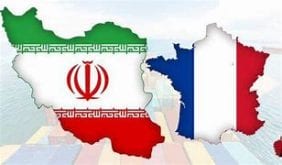IRAN HUMAN RIGHTS – In a statement released today, the spokesperson for UN High Commissioner for the Human Rights (OHCHR) called on the Iranian authorities to stop execution of the juvenile offender Sajjad Sanjari who is reportedly in imminent danger of execution and to institute a moratorium on the use of the death penalty in Iran.
According to the reports collected by Iran Human Rights (IHR) more than 32 prisoners have been executed during the last 6 days in Iran.
The statement by the OHCHR says:
“We call on the Iranian authorities not to carry out the apparently imminent execution of Sajad Sanjari, who was a juvenile when he was sentenced to death for fatally stabbing a man in 2012.
Sanjari was granted a retrial in 2014 under the provisions of the 2013 Islamic Penal Code. However, in 2015 the provincial criminal court of Kermanshah rejected his argument that he had acted in self-defence following a rape attempt on him and confirmed his death sentence, finding that he had sufficient “mental maturity” to understand his crime. Iran’s Supreme Court upheld the death sentence in August 2016.
Iran remains one of the few countries that execute juvenile offenders despite its obligations under international human rights law which prohibits the use of the death penalty against anyone under 18 years of age, no matter the circumstances or the crime.
At least five juveniles were reportedly executed in Iran last year and at least 78 people reportedly remain on death row for crimes they committed when they were under 18, although the actual figure may be much higher. The execution of juvenile offenders is abhorrent and we urge Iran to end this practice once and for all.
We also reiterate our call to Iran to immediately institute a moratorium on the death penalty, amid serious concerns about the continuing high number of executions and the lack of fair trial and due process guarantees in accordance with international human rights law. The imposition of the death penalty when fair trial guarantees are not respected may constitute a violation of the right to life.
Reports in recent days suggest that a number of people have been executed for drug-related offences. These include 14 people reported to have been hanged at the Central Prison in the city of Karaj and two executed at Rasht central prison on 14 January.
Drug offences clearly do not meet the threshold of most serious crimes under international human rights law for the application of the death penalty, as detailed by the UN Human Rights Committee*, and it is therefore deplorable that executions for drug crimes continue to be carried out in Iran.”
 Shabtabnews In this dark night, I have lost my way – Arise from a corner, oh you the star of guidance.
Shabtabnews In this dark night, I have lost my way – Arise from a corner, oh you the star of guidance.


